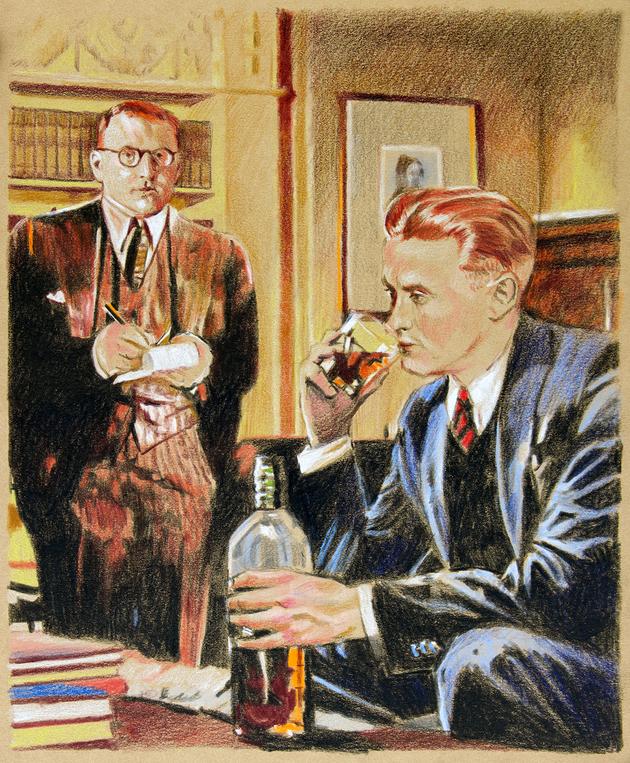

The profile of a downtrodden F. Scott Fitzgerald that read more like an obituary
Long ReadSome interviews with writers, actors and rock stars have become legendary 'classic moments,' thanks to a time when artists' voices were not tampered with by PR experts. In 1936, Michael Mok of the 'New York Post' visited the home of the author of 'The Great Gatsby.'

In September 1936, F. Scott Fitzgerald was about to celebrate his 40th birthday. He was already a shadow of his former self. The fragile mental state of his wife, Zelda Fitzgerald, now seemed hopeless. He had to face the facts: His novels were no longer of interest to many people. Already, on his return from France and North Africa in 1931, the writer had been surprised to find that the United States no longer resembled the country he had left a few years earlier.
But the understanding came later, in 1934, with the publication of Tender Is the Night, a novel he had been working on for eight years. It was precisely at this point that Fitzgerald realized that the wealthy people who populated his books had, in a way, gone out of fashion. The Great Depression of 1929 had changed all that. The party atmosphere, of which the novelist had become a brilliant chronicler, had given way to an America devastated by unemployment and misery. As Philip Rahv wrote in a devastating review of Tender Is the Night in the Daily Worker (a publication of the American Communist Party): "You can't hide from a hurricane under a beach umbrella."
Cornered, Fitzgerald chose to take the initiative and recount his depression in a series of three articles entitled "The Crack-Up," "Pasting It Together" and "Handle with Care," published by Esquire magazine in February, March and April 1936. In this gloomy set, the writer analyzed his "emotional bankruptcy," his inability to write, his physical exhaustion and, finally, his financial crash.
A worn-out man
It was in this context that Michael Mok, a reporter for the New York Post, requested an interview with the author of The Great Gatsby (1925). Fitzgerald immediately agreed to the request from the journalist, who was looking to make a name for himself. Although not one of the great writers of the American press, Mok would be remembered as the man who, like no other, was able to shed light on Fitzgerald's profound malaise.
At the time, it was agreed that the meeting would take place on September 24, the writer's birthday. Mok traveled to his home in Asheville, North Carolina, where Zelda Fitzgerald had just been committed to a psychiatric hospital. While Mok sensed the benefits to be derived from a worn-out man, he was primarily obeying the orders of the editor of the New York Post, who had deemed the series of articles in Esquire to be promising. A character like Fitzgerald, ready to expose his flaws, was bound to interest his readers, he thought, even those who knew nothing about the novelist.
You have 62.1% of this article left to read. The rest is for subscribers only.
